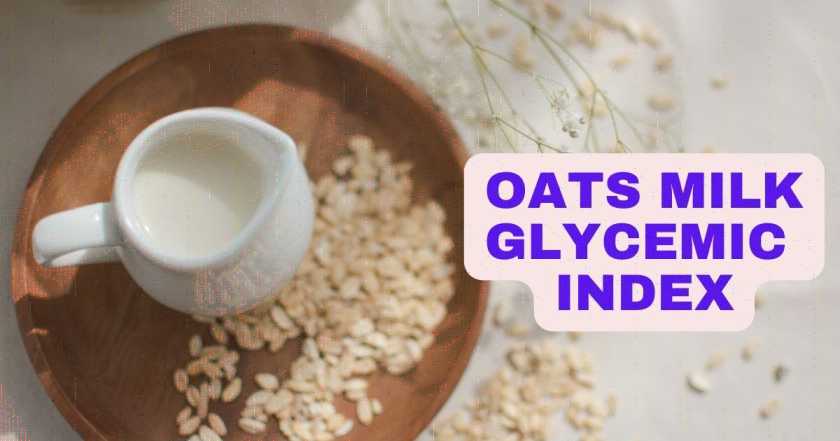Oat milk is a plant-based alternative to dairy milk that has gained popularity in recent years. It is made by blending soaked oats with water and straining the mixture to remove any solid particles. Oat milk is known for its creamy texture, mild flavor, and suitability for individuals with lactose intolerance or those following a vegan or plant-based diet. When it comes to the glycemic index (GI) of oat milk, it is considered to have a low to medium glycemic index.
Oat Milk Glycemic Index
The glycemic index is a scale that measures how quickly and how much a particular food raises blood sugar levels after consumption. It ranks foods on a scale of 0 to 100, with pure glucose having a value of 100, representing the fastest and highest rise in blood sugar levels. Foods with a low GI (below 55) are digested and absorbed more slowly, resulting in a gradual and steady release of glucose into the bloodstream.
What is the GI Index of Oat Milk?
- Glycemic Index (GI) of Oat Milk is around 100.
Oat milk generally has a glycemic index that falls within the low to medium range. The exact GI value can vary depending on various factors, including the brand, processing methods, and any added ingredients. On average, oat milk has a glycemic index of around 80 to 105, which classifies it as a food with a low to medium glycemic index.
Several factors contribute to the relatively low glycemic index of oat milk. First and foremost, oats themselves have a low GI. Oats are a whole grain that contains soluble fiber, which slows down digestion and the absorption of carbohydrates. When oats are processed into oat milk, some of the fiber content is retained, which contributes to the slower release of glucose into the bloodstream.
Moreover, oat milk contains a moderate amount of carbohydrates compared to cow’s milk. While the exact carbohydrate content can vary between brands, oat milk typically has a lower carbohydrate content than dairy milk. This lower carbohydrate content further contributes to the slower digestion and absorption of carbohydrates, resulting in a more controlled release of glucose into the bloodstream.
In addition to its low to medium glycemic index, oat milk offers several other nutritional benefits. It is naturally free from cholesterol and lactose, making it suitable for individuals with dietary restrictions or intolerances. Oat milk is often fortified with vitamins and minerals, such as calcium, vitamin D, and vitamin B12, to provide additional nutritional value.
The presence of soluble fiber in oat milk provides additional health benefits. Soluble fiber has been associated with improved heart health by helping to lower cholesterol levels and promoting healthy digestion. It also contributes to a feeling of fullness and can aid in weight management.
When incorporating oat milk into your diet, it’s important to consider any added ingredients or sweeteners that may affect the glycemic index. Some commercially available oat milk products may contain added sugars or sweeteners to enhance the taste. These additions can increase the glycemic index and should be taken into account when considering the overall impact on blood sugar levels. Choosing unsweetened or homemade oat milk can help minimize added sugars and provide a lower glycemic option.
It’s worth noting that the glycemic index is just one aspect to consider when evaluating the healthfulness of a food or beverage. It’s essential to look at the overall dietary pattern and consider factors such as nutrient content, portion sizes, and individual health goals.








